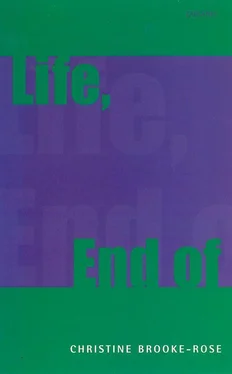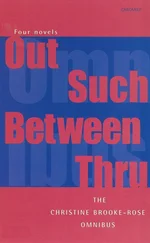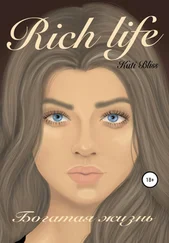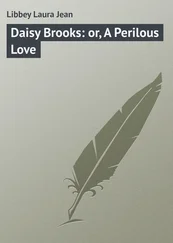Christine Brooke-Rose - Life, End of
Здесь есть возможность читать онлайн «Christine Brooke-Rose - Life, End of» весь текст электронной книги совершенно бесплатно (целиком полную версию без сокращений). В некоторых случаях можно слушать аудио, скачать через торрент в формате fb2 и присутствует краткое содержание. Год выпуска: 2012, ISBN: 2012, Издательство: Carcanet Press Ltd., Жанр: Современная проза, на английском языке. Описание произведения, (предисловие) а так же отзывы посетителей доступны на портале библиотеки ЛибКат.
- Название:Life, End of
- Автор:
- Издательство:Carcanet Press Ltd.
- Жанр:
- Год:2012
- ISBN:9781847775726
- Рейтинг книги:5 / 5. Голосов: 1
-
Избранное:Добавить в избранное
- Отзывы:
-
Ваша оценка:
- 100
- 1
- 2
- 3
- 4
- 5
Life, End of: краткое содержание, описание и аннотация
Предлагаем к чтению аннотацию, описание, краткое содержание или предисловие (зависит от того, что написал сам автор книги «Life, End of»). Если вы не нашли необходимую информацию о книге — напишите в комментариях, мы постараемся отыскать её.
by a master of experimental novels finds the author reflecting on her old age and its effects on her writing. As she reflects on her own career, her experiments with narrative, and on the narrative she writes here, she ultimately reasserts herself and accepts the life behind her.
Life, End of — читать онлайн бесплатно полную книгу (весь текст) целиком
Ниже представлен текст книги, разбитый по страницам. Система сохранения места последней прочитанной страницы, позволяет с удобством читать онлайн бесплатно книгу «Life, End of», без необходимости каждый раз заново искать на чём Вы остановились. Поставьте закладку, и сможете в любой момент перейти на страницу, на которой закончили чтение.
Интервал:
Закладка:
Christine Brooke-Rose
Life, End of
Life, End of
1
The head top leans against the bathroom mirror so that the looking glass becomes a feeling glass. But what does it feel? This position is for body-balance during the brushing of teeth and the washing of face neck arms and torso. Below is for the biddy, and the feet, if sitting on a stool. But especially the torso. For in fact the teeth can also be brushed if the loins touch the washbasin however cold, or the hand grips the edge, on condition neither is wet.
And then the drying of the body-parts, one hand on the tall towel-radiator, the other on the lower part of the towel to dry the lower body. Dressing means sitting on the bed, entering pants, rising, legs in calf-love with the bedside, to slide the pants then trousers past the bottom before swiftly sitting again. The feet feel where the entrances are, whether of pants or slippers.
Standing, on its own, without support somewhere, causes a tidal wave of nothingness in the head and a limping rush to the nearest armchair or bed. That means that nothing, nothing at all, no action or gesture, can now be done with two hands, if standing. That’s a lot of gestures to unlearn.
But one contact is enough for minimum stability, one touch anywhere, from headtop to hip to hand or even one fingernail on the wall as the blood pressure is measured first sitting then standing, orthostatic as they say, when the tension drops by several degrees in a few seconds. Or sometimes rises, for no reason unless euphoric, or falls systolically and rises diastolically or vice versa. It staggers and lurches, like the body unless contact is made through headtop hand finger thigh calf with the ground the earth the planet the galaxy the universe. But then the universal is what is wrong with humanity.
The tidal wave of nothingness is not vertigo, from the inner ear dipping like a builder’s plumb rule, for which there is a cure with turning lights, undergone. It is at unlucky times a faintingness due to the latest change of pill prescribed by the cardio, cancelled by the doctor after heartbeat drop, represcribed by the cardio, recancelled by the doctor, the process repeated with three different pills until a pacemaker is put in.
Besides, many seek vertigo, addicts of all kinds including mountain climbers vertigo all that trouble for a moment of spurious hegemony above all that beauty and now, like everywhere over-populous, leaving their human garbage all the way up, all the way down.
No, it’s an imbalance from the brain’s wrong messages to the inside of the feet and legs, their nerve fibres slowly withering and reversing their tasks, so that where there should be feeling there isn’t and vice versa. Just like love of all kinds. At first the feet on the car-pedals feel like two blocks of ice, then can’t feel the pedals at all, but steadily burn and braise where they shouldn’t feel more than the normal fatigue of a long walk, which, like the car, slowly becomes a thing of the past.
But who feels what? A looking glass is for looking in, not looking out. The fingernail of contact feels nothing. Is it the feet that feel or their boss the brain? Nous no use. Mirrors, once polished steel or later crystal to flatter more, are soon called glace from Latin for ice, or miroir from Latin for looking, however icy the image. Both get borrowed as ever by the English élite, the first fused with native glass , the second just chic, then disdainfully discarded when picked up by the then-called lower orders and shattered down to become a class-labelling code, replaced higher by two native words, looking, plus glass. Looking becomes a window-pane or a drink, not frost. Grammatically, it’s the glass that looks, as in blinding light (for who can blind a light?). Or at least ambiguous, like running-board, dressing-gown, drawing-room, frying-pan (who fries, man or pan?), driving-wheel. But then the so-called higher orders are never hot on grammar, any more than the so called lower. Similarly serviette is replaced by napkin. The tain foil behind the glass causes the so-called upper to look at the so-called lower and vice versa, as in distorting mirrors, until eventually the upstairs doors are opened to all and that particular élite learns domestic chores, at once therefore made fashionable and easier for them by the new labour-saving devices, and the social code shatters again.
Does steel or glass or napkin or ground or earth or universe feel? Humans invent gods of various kinds to think so.
The legs now burn permanently, hot charcoal in the feet creeping up the shins and knees and growing tall, two burning bushes, two pillars of fire for frail support. At every step they flinch wince jerk shirk lapse collapse give way stagger like language when it can’t present the exact word needed, the exact spot where to put the foot.
But no, it’s not the top of the head either, leaning against the glass, but the top of the forehead, where top ideas nestle and suddenly soar. So why is it called the hypothalamus? Maybe because top means shallow?
Why does the West always prefer widening to deepening, while the East likes the opposite? Will Europe survive by widening before deepening? Is ‘wider is wiser’ wiser? Is ‘deeper is steeper’ steeper?
The thalamus and hypothalamus are in the forebrain under the cerebral hemispheres. The thalamus is the main relay between the medulla in the hindbrain and the cerebrum in the forebrain.
Thalamus means inner chamber, or cavity, or the receptacle of a flower, a ventricle in the brain, and so, surely, a cerebral womb. Yet like a phallus it takes over the medulla’s transmission from the spinal cord to the cerebellum, still in the hindbrain, and sends it all to the cerebrum, the top brain, that convoluted glory as developed in the higher mammals and more especially humans. There the transmitted sparks clash into motor neurons inside a synaptic cleft and create impulses.
Hypo means under, lesser, for the hypothalamus is a lower or downstairs inner chamber (a kitchen? a pantry? a scullery?), controlling pleasure, pain, hunger, thirst, blood pressure, body temperature, the sex-drive and the hormones governing the phlegm secretions of the front pituitary gland, not to be confused with the pineal gland, called epiphysus cerebri meaning a growth upon the cerebrum, a parasite which, structured as an eye in the lower vertebrates, is not organised as an eye in the higher, where it functions as a light-receptor, its endocrine job being to elaborate the hormone melatonin, causing the concentration of melanin, the black or brown pigment cells called melanophores. To act perhaps as the tain foil of a looking glass? The eye-shape but not the eye as mirror of the soul? Seemingly endless, like that sentence. At any rate this gland is where Descartes places the soul, thus putting de cart before dehors.
But the hypothalamus does not control balance and coordination. That, in the division of labour, is the task of the cerebellum (the war of Ceres?), back in the hindbrain, receiving the signals from the spinal cord.
The floor the ground the earth are for walking on feet, the world the universe for walking in the head. A walking illness keeps the universe for the head but leaves, for the feet, only the floor. How long will the head last? The few remaining pleasures are not the sex-drive, nor body-temperature hunger thirst or blood pressure but pleasures in the head so rich and devious, and, also, pain as the dubious pleasure of a constant companion, sometimes intolerable, and now vanishing only in the just reachable armchair or bed. And only insofar as the cardiovasco de gamma network still functions, more or less. Pain is from Old French pener , to punish. For what? Nulla poena sine lege .
Читать дальшеИнтервал:
Закладка:
Похожие книги на «Life, End of»
Представляем Вашему вниманию похожие книги на «Life, End of» списком для выбора. Мы отобрали схожую по названию и смыслу литературу в надежде предоставить читателям больше вариантов отыскать новые, интересные, ещё непрочитанные произведения.
Обсуждение, отзывы о книге «Life, End of» и просто собственные мнения читателей. Оставьте ваши комментарии, напишите, что Вы думаете о произведении, его смысле или главных героях. Укажите что конкретно понравилось, а что нет, и почему Вы так считаете.












